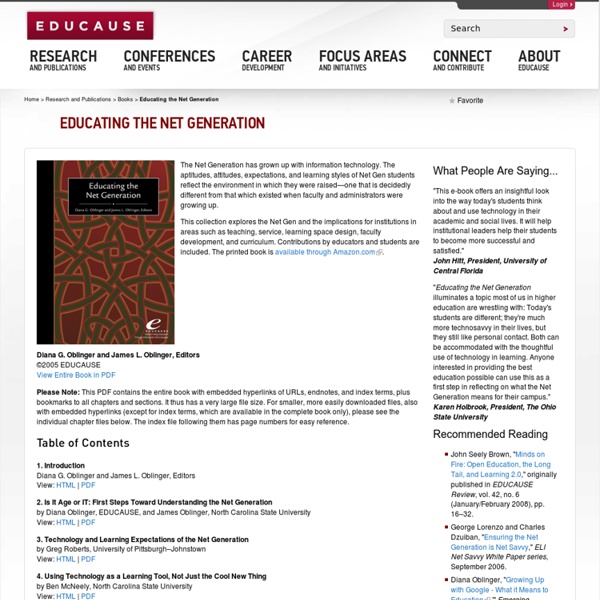75 Tips to Reduce eLearning Costs
June 17, 2011 Contributing Editor, Patti Shank, Ph.D. In this complimentary eBook, eLearning Guild members reveal imaginative ways to cut eLearning costs, and share insights on how to optimize your resources to get the job done more efficiently and effectively, without sacrificing quality. See how others are doing amazing things with limited budgets, and how innovative cost-saving ideas can help you do more with less. Depending on the speed of your Internet connection, this document could take a few moments to download (27 pages in PDF format, ~2.3MB).
silversprite
58 Tips for Breakthrough eLearning Instructional Design
April 5, 2012 Contributing Editor, Chris Benz Instructional Design (ID) is — or at least should be — the foundation for effective eLearning. This complimentary eBook draws on the ideas and experience of 14 ID experts who are leading sessions that are part of The eLearning Guild’s May 2012 Online Forum on “eLearning Instructional Design: Advanced and Breakthrough Techniques.” ResearchDesignDevelopmentProject management Complete the form below and download the report today! All fields are required
GamesParentsTeachers :: Games Parents Teachers
98 Tips for Selecting and Working with e-Learning Service Providers
June 23, 2009 Contributing Editor, Marcia Conner Thinking broadly, leveraging our resources and cultivating strong networks make sound business sense. Special THANKS! Depending on the speed of your Internet connection, this document could take a few moments to download (41 pages in PDF format, ~2MB).
Digital Game-Based Learning: It's Not Just the Digital Natives Who Are Restless (EDUCAUSE Review)
© 2006 Richard Van Eck EDUCAUSE Review, vol. 41, no. 2 (March/April 2006): 16–30. Richard Van Eck Richard Van Eck is Associate Professor at the University of North Dakota, where he has been the graduate director of the Instructional Design & Technology graduate program since 2004. He began his study of games with his dissertation in 1999 and has taught a graduate course in games and learning every year since 2001. Comments on this article can be sent to the author at richard.vaneck@und.edu. After years of research and proselytizing, the proponents of digital game-based learning (DGBL) have been caught unaware. The first factor is the ongoing research conducted by DGBL proponents. One could argue, then, that we have largely overcome the stigma that games are “play” and thus the opposite of “work.” This is not to say that we have ignored this issue entirely. The Effectiveness of DGBL If we are to think practically and critically about DGBL, we need to separate the hype from the reality.
53 Tips on Using the Cloud for eLearning
May 7, 2012 Contributing Editor, Karen Forni The cloud has tremendous potential in the eLearning world, but there are so many choices; a little guidance can go a long way in making the most of this exciting technology. Should you use a public or private cloud? How can you make the online experience more seamless? How can you improve your bottom line? This complimentary eBook draws on the experience of 11 eLearning professionals who are leading sessions in The eLearning Guild’s June 2012 Online Forum, “Using the Cloud for eLearning.” PlanningCostContent and the User ExperienceSupport and Security Complete the form below and download the report today! All fields are required
www.papert.org/articles/Doeseasydoit.html
Does Easy Do It? Children, Games, and Learning By Seymour Papert From the June 1998 issue of Game Developer magazine, "Soapbox" section, page 88. Most of what goes under the name "edutainment" reminds me of George Bernard Shaw's response to a famous beauty who speculated on the marvelous child they could have together: "With your brains and my looks..." Shavian reversals—offspring that keep the bad features of each parent and lose the good ones—are visible in most software products that claim to come from a mating of education and entertainment. The kind of product I shall pick on here has the form of a game: the player gets into situations that require an appropriate action in order to get on to the next situation along the road to the final goal. The crux of what I want to say is that game designers have a better take on the nature of learning than curriculum designers. Two big lessons I have learned from computer games are opposites of the messages of the ads I was quoting.
Videoconferencing Cookbook
brought to you by the Video Development Initiative COPYRIGHT Video Development Initiative (ViDe) et al, 2004-5 This work is the intellectual property of ViDe and the authors. Permission is granted for this material to be used for non-commercial, educational purposes with the stipulations below. To disseminate or republish otherwise requires written permission from ViDe. Incorporation of all or portions of the Cookbook into other electronic, online or hard copy works is not allowed. March, 2005



